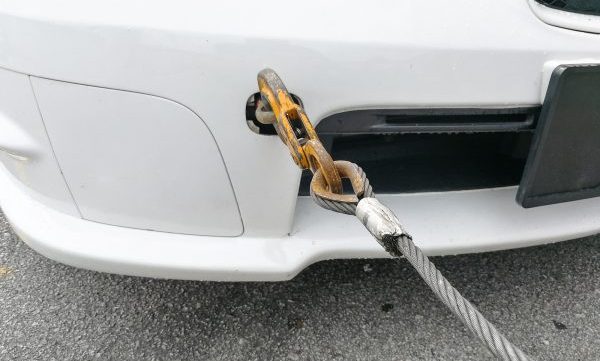If you are planning to hook up a trailer and tow a cargo, it is important to know exactly how to do so safely, whether you are traveling a long distance or just around the corner. Keep in mind that towing safety starts before you leave the drive, and continues a long the journey.
Continue reading to learn some vital before and after towing tips that will help to ensure everyone’s safety, including your cargo.

Indianapolis Towing & Recovery 317-247-8484
Before You Tow
There are several things you need to do before you even put the keys in the ignition and drive away. In fact, the safest form of towing involves a focus on preparation. Here is what you need to do before heading out on the road with your rig:
If you are towing a vehicle, place an “On Tow” sign in the rear window to alert other drivers to be cautious. Many towing ropes and poles come with this sign, but you may have to purchase it separately. Do not make your own sign; store-bought signs are made with safety features, like reflective technology.
Always do a full inspection of your towing ropes and poles. Look for damage, defects, abrasives, rips, tears, and frays. These are all signs that your equipment is unsafe to use. Do not use your towing ropes or poles if they show signs of damage like this.
If you are towing another vehicle, be sure to leave the ignition switch in the “ON” position. This will disengage the steering lock, allowing for more controlled towing. This is especially important for vehicles that have power steering and/or power-assisted steering.
After You Hit the Road
Once you are on the road with your cargo in tow, the responsibility to tow safely remains just as strong. The most important duty is to drive with extreme caution and care. However, there is more to it than that. Here are some important reminders for safe towing while out on the open road:
Maintain a minimal speed. If towing another vehicle, try to remain under 20 miles per hour. If you are towing anything else, stay 5 to 10 mph BELOW the mandatory speed limit for optimal safety. If you are driving too fast, you can lose control of your reaction times, and take much longer to come to a stop.
Relating to speed and caution, be sure to signal and plan maneuvers ahead of time. This helps to forewarn other drivers on the road. This includes using your turn signals and hazard lights. Furthermore, try not to brake suddenly, and instead, plan ahead in advance.
Operate the clutch slowly and carefully so to not snap or snag a towing rope. This can cause the towed cargo to jerk forward suddenly, which can cause all sorts of dangerous situations. For the same reasons, do not suddenly change direction or use excessive maneuvers.
Need a Professional Tow?

Indianapolis Towing & Roadside Assistance 317-247-8484
